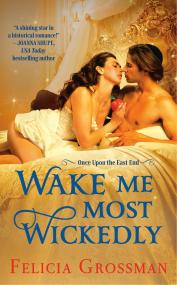Promotion
Use code MOM24 for 20% off site wide + free shipping over $45
One Night with the Duke
Contributors
Formats and Prices
Price
$8.99Price
$11.99 CADFormat
Format:
- Mass Market $8.99 $11.99 CAD
- ebook (Digital original) $7.99 $9.99 CAD
- Audiobook Download (Unabridged) $27.99
- Trade Paperback $16.99 $22.99 CAD
This item is a preorder. Your payment method will be charged immediately, and the product is expected to ship on or around November 7, 2023. This date is subject to change due to shipping delays beyond our control.
Also available from:
Eliza Melrose has always cherished her independence. And when she and her family lived in the countryside, it was easy to slip out for a midnight ride, write articles for her father’s newspaper, and otherwise do as she pleased. But now that they’ve moved to the heart of fashionable London, her every move is scrutinized and judged. Worse yet, her father wants her to wed and take her proper place in society.
But Eliza wants nothing to do with marriage. And when the new Duke of Chester moves into his family’s long-abandoned home across the square, her journalistic instincts immediately kick in. Are the rumors true—did he really kill his family? Is he as rakish as everyone says? The more Eliza finds out, the more she wants to know. Because the duke is a fascinating study of contradictions—reclusive and arrogant, fiercely protective and deeply passionate. But those who dance too close to the fire often get burned. And as the undeniable flame between them ignites, the only question is: Who’s holding the match?
Sexy, scandalous and utterly unputdownable, this is the Regency novel you've been waiting for!
Genre:
-
"Malpas's sexy love scenes scorch the page."Publishers Weekly
-
"Super steamy, emotionally intense."Library Journal on With This Man
-
"A brave, cutting-edge romance...This is a worthwhile read."Library Journal on The Forbidden
- On Sale
- Nov 7, 2023
- Page Count
- 336 pages
- Publisher
- Forever
- ISBN-13
- 9781538726181
Newsletter Signup
By clicking ‘Sign Up,’ I acknowledge that I have read and agree to Hachette Book Group’s Privacy Policy and Terms of Use







